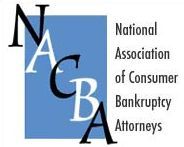Sometimes.
It depends on how much the house is worth, and whether there is a mortgage on it. It also makes a difference which chapter you file under, that is, chapter 7 or chapter 13.
You are allowed to protect a certain dollar amount of value in your house, as you can with other assets.
The amount you can protect, i.e. exempt, depends on what state you live in.
The federal Bankruptcy Code allows states to decide whether or not their residents may choose between using the state's exemptions or the federal exemptions. Many states have chosen to require their residents to use only that state's laws as to what assets may be protected in bankruptcy. Other states give their residents a choice. Either way, it is important to determine how much equity you have in your house. Pennsylvania allows its residents to choose between the federal exemptions and the Pennsylvania exemptions.
You determine what the house is worth, i.e. your equity, by subtracting any mortgage balances from the amount the house could sell for. If the house is owned jointly, you would only need to protect your half of the equity. For example, if the house could sell for $100,000, and you own it jointly, with a $60,000 mortgage, the equity is $40,000. Your half of the equity would be $20,000. In a state where you can protect up to $25,000 of your equity, you can protect the house from the trustee.
If a married couple files a joint bankruptcy, while owning a house jointly, each spouse is permitted to protect their equity as long as it does not exceed the limit for that state. If the limit is $25,000 in your state, the couple can exempt up to $50,000 by combining their exemptions.
However, if a trustee could sell the house for $150,000, and the mortgage is $60,000, that would mean there is $90,000 equity. Joint owners would each have $45,000 equity. In the state where each debtor may protect up to $25,000, a chapter 7 trustee would sell your house, pay off the mortgage, and give each of the joint debtors $25,000 from the sale proceeds. The trustee would have $40,000 remaining from the sale proceeds after paying off the $60,000 mortgage and paying $50,000 to the joint debtors. The trustee would use that $40,000 to pay unsecured creditors.
At Seelinger Law, we only recommend filing for chapter 7 if we are confident that the value of our client’s house would be protected from the trustee.
We may advise our client to file a chapter 13 bankruptcy if we believe there would be a risk of our client losing their home in a chapter 7, because in chapter 13, the trustee cannot take your house and sell it. Instead, the chapter 13 trustee requires you to pay your unsecured creditors as much as the chapter 7 trustee would have paid them. You get 3 to 5 years to do so, and you get to keep your house.

